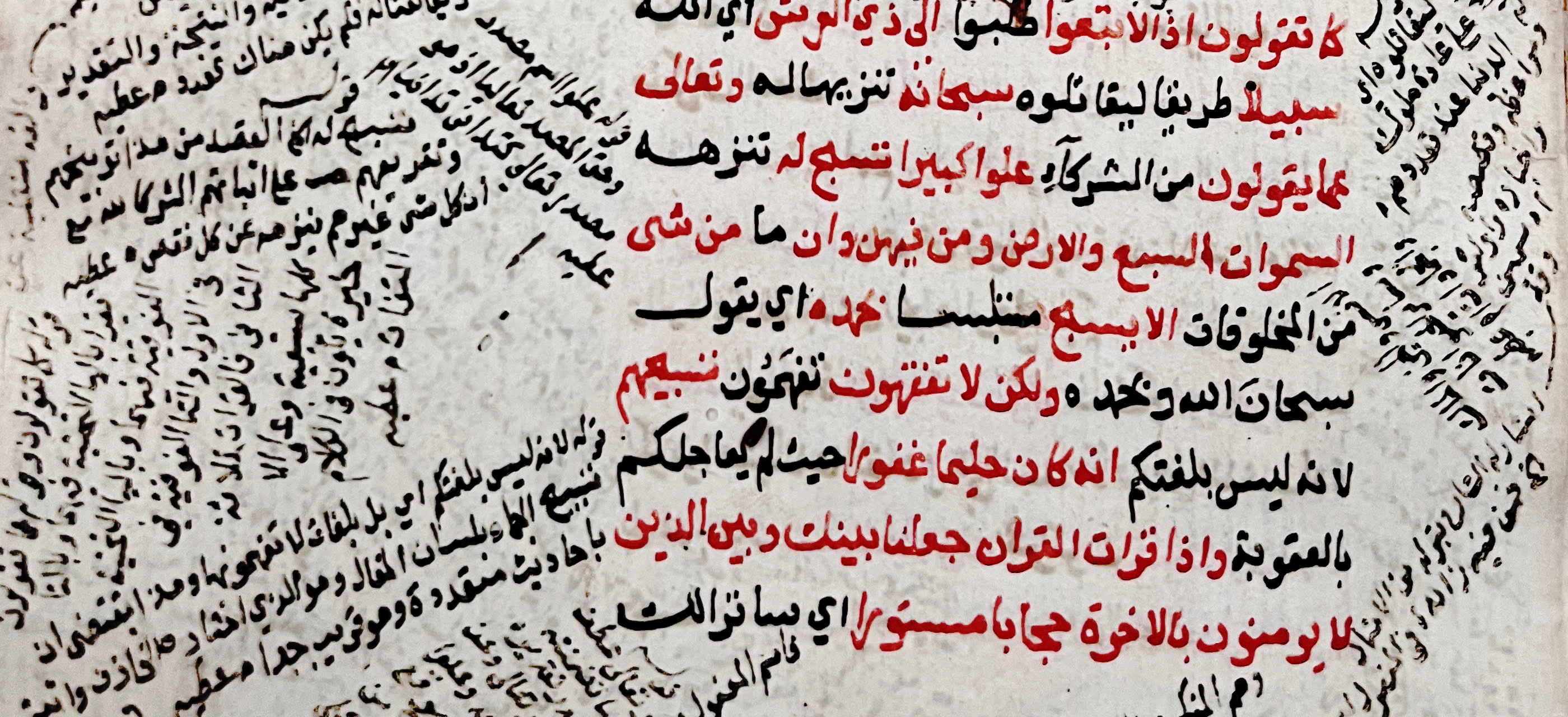The Essentials of Ibadi Islam. By VALERIE J. HOFFMAN. Modern Intellectual and Political History of the Middle East. Syracuse: SYRACUSE University PRESS, 2012. Pp. xii + 344. $39.95.
Contenu
- Titre
- The Essentials of Ibadi Islam. By VALERIE J. HOFFMAN. Modern Intellectual and Political History of the Middle East. Syracuse: SYRACUSE University PRESS, 2012. Pp. xii + 344. $39.95.
- Créateur
- Francesca, Ersilia Voir tous les contenus avec cette valeur
- Date
- 2015
- Dans
- Journal of the American Oriental Society Voir tous les contenus avec cette valeur
- Résumé
-
Western scholars and students with an interest in the history of Ibädi Islam and Oman are no doubt familiar with the name and some of the extensive works of the author of the book under review, in which she resumes her previous research devoted to Ibädism in Oman and Zanzibar in the nineteenth and twentieth centuries. During repeated research stays in Oman over a decade Hoffman collected the material for the present volume, which, as she phrases it in the introduction, "is an attempt to introduce Ibädi Islamic theology to students and scholars of Islam, mainly through annotated translations of two basic Ibädi theological texts, in order to address the general unavailability of Ibädi texts to all but the most specialized scholars of Islam" (p. 4). The relative lack of interest in Ibädi theology may be partly because Ibädi religious literature is often obscure and difficult to understand. In fact, the oldest Ibädi theological literature is mainly fragmentary intra-community correspondence: letters (generally termed sira, pi. siyar) from imams and ulema with advice and/or explanations to the members about controversial religious and political issues. Moreover, according to European works from the last century, of which the older ones rely on only a few Ibädi sources, the distinctive nature of Ibädism seems to consist chiefly of a quietist political doctrine and of a religious puritanism.
However, Ibädism presents a more complex reality. First of all, its sectarian nature is not so obvious. According to tradition, the Ibädi movement derives its name from cAbd Alläh Ibn Ibäd, who broke from Khäriji extremists in circa 65 A.H. (684/5) over the attitude to be adopted toward other Muslims. The Ibädis have been wrongly identified with the Khärijls by both Western scholars and non-Ibädi Muslim authors-Ibädis are instead very distant from them in political as well as religious matters. The connection between the two stems from the fact that most of the dissident Khärijis were from the Tamim tribe to which Ibn Ibäd also belonged. Moreover, proto-Ibädis were part of the Muhakkima movement of the early Khärijis, sharing with them the principle that the rule on earth belongs to God alone (la hukma ilia li-lläh). The Ibädi distinction from orthodox or Sunni Islam should be conceived in terms of internal Islamic diversity of doctrinal belief rather than in terms of their affiliation to Khärijism. As such the Ibädis are not a sect but a school (madhhab) that kept in close contact with the Sunni community and contributed to the general debate from which Islamic law and theology began to develop during the first two centuries in the heartland of the Muslim world, namely, Basra and Kufa, but also the Hijäz.
Despite its antiquity, Ibädi Islam-and particularly Ibädi theology-remains little known and has often been misunderstood. To date the best-known monographs devoted to Ibädi theology in a European language are Studies in Ibädism by 'A. Kh. Ennami (Ph.D. diss., Cambridge Univ., 1971; [Benghazi]: Univ. of Libya, 1972; [Muscat] 22005) and Introduction a l'étude de l'ibadisme et de sa théologie by P. Cuperly (Algiers: Office des Publications Universitaires, 1984). This book by Valerie Hoffman seeks to amend the gap of three decades. Her main source is a brief and clear text intended as a primer for Ibâdï students of theology, al-cAqlda al-wahbiyya by Nâsir b. Sâlim b. cUdayyam al-Rawâhï (d. 1920), a prolific scholar better known in Oman as Abu Muslim al-Bahlânï. Unfortunately he died prematurely, leaving the work incomplete. Hoffman therefore also includes a translation of the passages of Kitab MaJalim al-dln by cAbd al-cAzïz al-Thamïnï al-Muscabï (d. 1808) dealing with predestination, a fundamental topic of Ibâdï theology that is omitted in al-Rawâhï's primer.
Although it would be impossible to understand the early development of the movement and the doctrinal and political disputes over issues that led to its split into several subdivisions (firqa) without a reference to Ibädism's classical sources, I should emphasize the importance of including recent Ibâdï scholarship in an account on theology. Since theology played a role historically in creating sectarian identities and in defining and safeguarding Islamic belief, it is crucial to inquire about the theological discussions and debates among Ibâdîs during the nineteenth and twentieth centuries when the Ibâdï reform movement began to reconcile Islam and modernity. Through an analysis of modern Ibâdï religious literature, Hoffman sheds light on Ibâdï theological formulations on topics that differentiate Ibâdï doctrine from Sunni Islam, such as reward and punishment in the afterlife, free will and predestination, anthropomorphic description of God, the creation of the Quran, and so on. The theological tenets explicated by Hoffman are of great importance in understanding not only prevailing Ibâdï doctrine, but also their striving from the nineteenth century onward to avoid both Westernization and Islamic radicalism.
Nevertheless, fundamental Islam remains an important part of Ibadism. Ibâdï ethical principles reveal a rigorous conception of life and faith. Sinful actions entail the loss of a state of purity and render the sinner unfit to participate in religious rites. This moral austerity leads the Ibâdîs to refute any kind of innovation, laxity, or modern idea and to interpret the ancient precepts in the most stringent fashion. Salvation can only be achieved through prayer, pious living, and hard work.
Ibâdîs show a strong cohesion as a group outside of the mainstream; its dogmatic basis lies in the concepts of waläya and banda (association and dissociation), namely, the duty of friendliness toward individuals who fulfil the precepts of religion and, conversely, the duty of hostility against those who do not deserve to be called believers. The doctrine of waläya and banda has its counterpart in orthodox belief only as regards the general duty of solidarity with the faithful and hostility toward infidels. According to the general rule, true believers must declare beträgt from tyrants and their followers and they must not take any of them as wäll. A country governed by tyrants and unjust rulers must be declared a land of tyranny and injustice.
In the early centuries of Islam, a serious threat to the exacting Ibâdï position was represented by MurjPites, who propounded the doctrine of suspended judgment on the fate of sinners in the afterlife and on the first fitna. This was wholly contrary to the Ibâdï view of TJthmän and cAlï and their rejection of the Umayyad dynasty. The contribution of MurjPism was crucial to Ibâdï development, for some MurjPï ideas penetrated the movement; they were propagated by Härün b. al-Yamän (fl. ninth century), causing a serious split in the Mashriqï Ibâdï community. He proposed a tolerant attitude to waläya and baräya, according kufr status only to those committing sins that deserved hadd punishment in this world and hell in the next. He recognized a middle way (manz.Ua bayna l-manzilatayn) for people committing sins that his predecessors, such as Abu Ayyub, considered to be major. Furthermore, Härün tied the faith to individual piety (taqwä) rather than to the strict interpretation of religious observances.
On this topic, crucial for the understanding of Ibädism, Hoffman emphasizes a definite inconsistency between theory and practice in the modern Ibâdï sources. One would expect an intolerant attitude toward all those not deserving the status of "true believers," but al-Rawâhï's primer shows a high degree of tolerance toward non-Muslims (e.g., the British Colonial Office in Zanzibar) and toward nonIbâdï Muslims, who are treated like Ibâdîs where intermarriage and mutual inheritance are concerned.
After tracing the history of the movement and delineating its distinctive teachings in the first part of the book (pp. 3-53), Hoffman turns the second part (pp. 55-237) over to the translation of al-Rawâhï's al-cAqlda al-wahbiyya and the third part (pp. 241-76) to the partial but valuable translation of al-Muscabï's Kitäb MaJälim al-dln. The volume concludes with a glossary, a biographical dictionary, references, and an index (pp. 279-344). The translations are generally convincing and competent. Al-Rawâhï was a great poet and mystic (his biography is on pp. 45-46) and the author of some works of prose including his cAqida, which owes its name to cAbd Allah b. Wahb al-Râsibï, one of the first Khârijî leaders, who was killed at the battle of Nahrawân. The cAqida synthesizes and popularizes Ibâdï doctrine by way of a dialogue between students and teacher in which the latter elucidates the Ibâdï principles of faith and discusses the doctrines of different Muslim schools (Sunni, Shici, Mu'tazilï, and Khârijî) as well as the differences between the North African and the Eastern (Oman and Zanzibar) Ibâdï communities.
The particular importance of Hoffman's volume lies in the first translation into English of this important and interesting text. For the rest, The Essentials of Ibadi Islam is a basic introduction to Ibâdism, polished and well written, ideal for the graduate classroom or even the advanced undergraduate, and suitable for those wanting to understand Ibâdï doctrine and acquaint themselves with theological texts. - Sujet
- Zanzibar Voir tous les contenus avec cette valeur
- Langue
- eng
- analyse de
- Hoffman, Valerie J. Voir tous les contenus avec cette valeur
- volume
- 135
- numéro
- 2
- pages
- 399-401
- doi
- 10.7817/jameroriesoci.135.2.399
Francesca, Ersilia, “The Essentials of Ibadi Islam. By VALERIE J. HOFFMAN. Modern Intellectual and Political History of the Middle East. Syracuse: SYRACUSE University PRESS, 2012. Pp. xii + 344. $39.95.”, 2015, bibliographie, consulté le 18 septembre 2024, https://ibadica.org/s/bibliographie/item/2375
Position : 1945 (10 vues)

